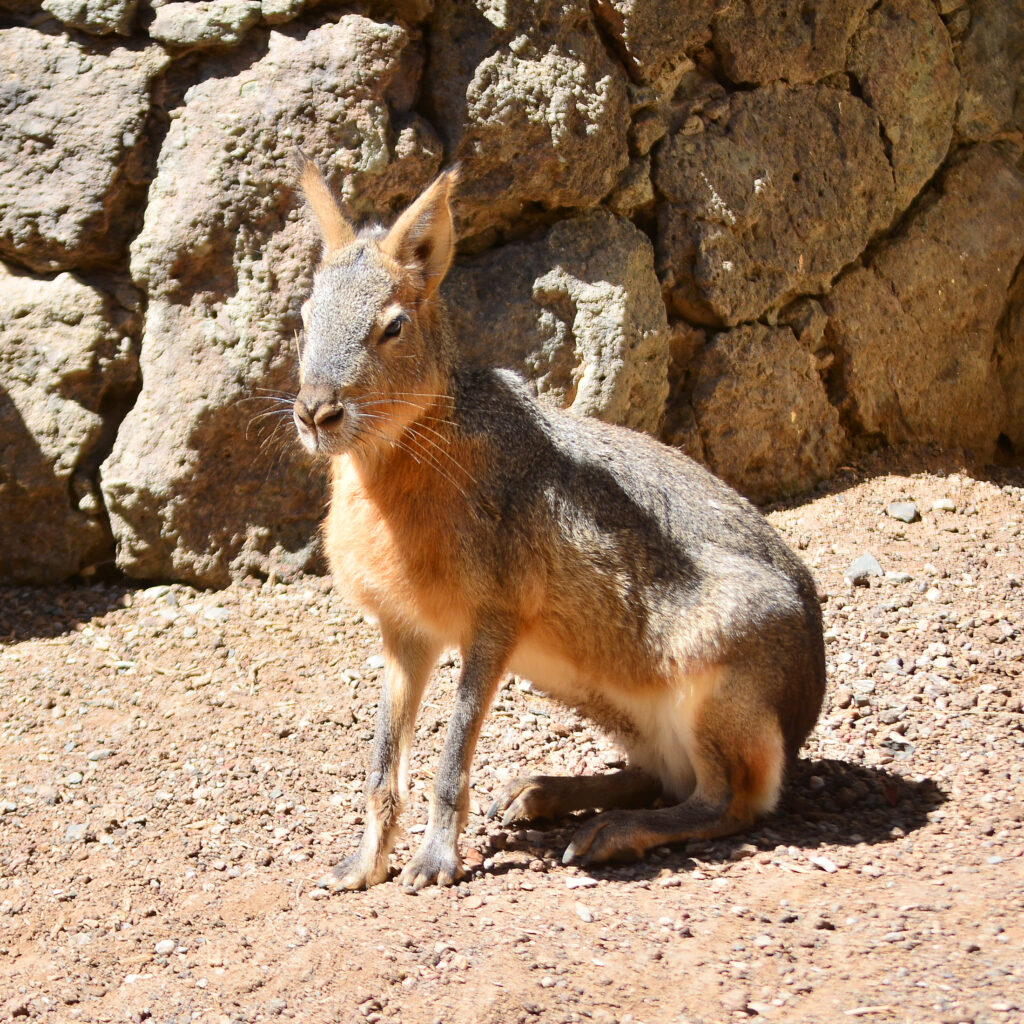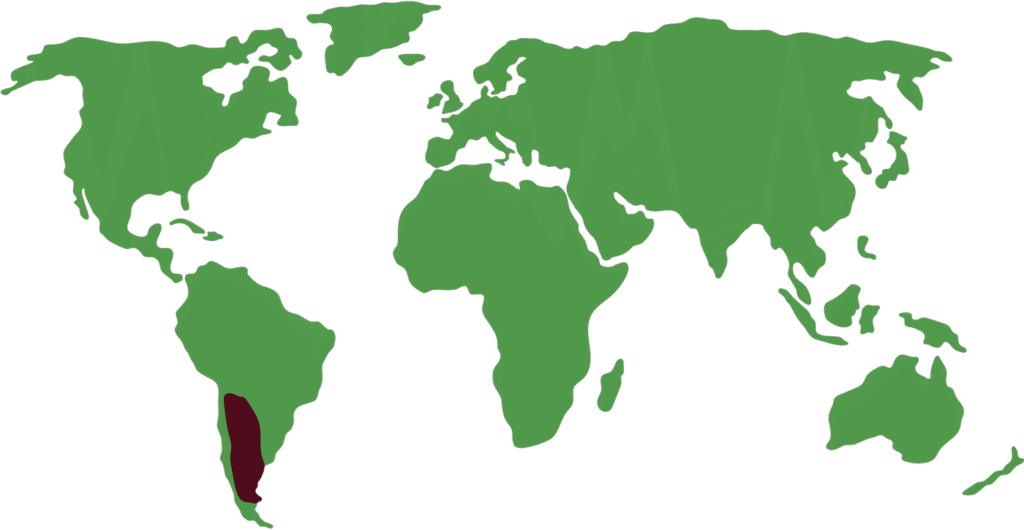PATAGONIAN MARA
Dolichitis Patagonum

lengtH

70-75 cm
WEIGHT

8-16 kg max
lifespaN

14 years
Maras are South American herbivores that belong to the same family as guinea pigs. Although they look like a mix between a hare and a deer, they are rodents.
General Characteristics
They have elongated bodies, long legs, and large ears. Their fur is short, in shades of gray and brown, with a white patch on the rear. They can reach up to 75 cm in length and weigh around 16 kg. There are no notable differences between males and females.
Feeding
They are herbivores. They feed mainly on grass, leaves, and some herbs. They graze during the day, and their digestive system is adapted to extract the maximum amount of nutrients from their fibrous diet.
Distribution and Habitat
They live in Argentina, especially in arid and semi-arid areas such as Patagonian steppes and shrublands. They prefer open terrain with low vegetation, which allows them to detect predators from a distance.

Behavior
They are social animals, usually living in monogamous pairs, but they can form larger groups in areas with abundant resources. They are diurnal, most active in the morning and afternoon. They run and jump with great agility to escape predators.
Reproduction
Gestation lasts about 90 days. They usually have 1 to 3 offspring per litter. The young gather in communal burrows while the mothers go out to feed. Both parents participate in caring for the young.
Did You Know?
Maras can reach speeds of up to 50 km/h to escape predators.
Despite being rodents, they walk like ungulates, supporting only their toes.
They form “daycare groups” where young from different pairs are cared for together.
Threats
Their populations have declined due to habitat loss, hunting, and competition with livestock. Additionally, introduced predators such as foxes and dogs pose a threat to the young.
Conservation Status
